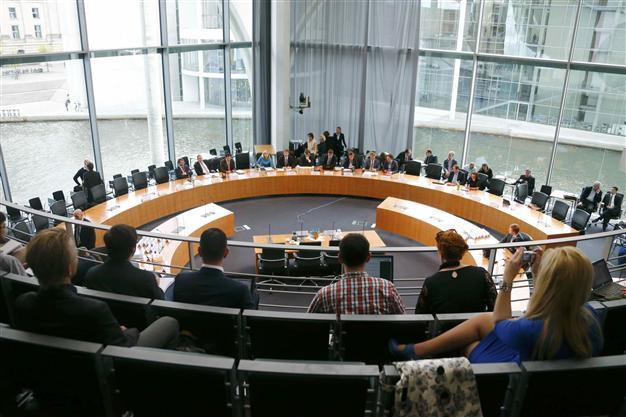Germany ‘restricts spy cooperation with NSA’
BERLIN – Agence France-Presse

REUTERS Photo
Germany’s secret service has severely restricted cooperation with its U.S. partner the NSA in response to a scandal over their alleged joint spying on European officials and companies, media reported on May 7.
The foreign intelligence agency BND this week stopped sharing Internet surveillance data with the U.S. National Security Agency (NSA), passing on only fax and phone intercepts, the reports said.
Berlin now demands that the NSA provide a justification for each online surveillance request, reported the Sueddeutsche Zeitung daily, public broadcasters NDR and WDR, and national news agency DPA.
The NSA had been unable to meet the new request at short notice, the reports said. However, such a rule had long been in place for fax and phone surveillance conducted by the BND for the NSA.
“This is definitely a dramatic step,” said Greens party lawmaker Konstantin von Notz, who serves on a parliamentary panel investigating the NSA’s surveillance activities.
“I think they’ve pulled the emergency brake because, even in 2015, they still can’t control the search terms for Internet traffic,” he said, charging that the government was unable “to protect German and European interests.”
Some 120 BND staff and several NSA technicians have long worked together at the BND’s listening post in Bad Aibling in the southern state of Bavaria, a former US military surveillance facility.
German media have reported that their targets have included not just suspected extremists and criminals but also, among others, the French presidency, the European Commission and the Airbus Group.
The “BND affair” has rattled the government of Chancellor Angela Merkel and caused a rift in her “grand coalition” government with the center-left Social Democrats.
The government has so far declined to release a list of the NSA’s requested search terms for IP and email addresses and mobile phone numbers, citing its ongoing consultations with Washington.
